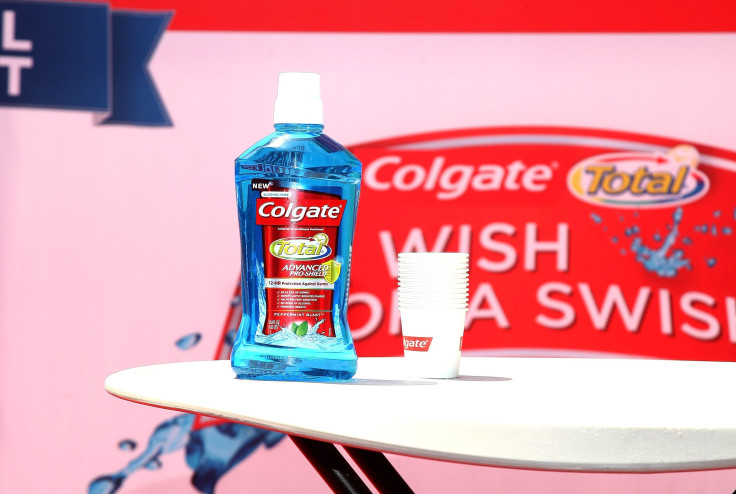Can Mouthwash Kill Coronavirus? Here's What You Need To Know
Your daily mouthwash rinse may help lower your chances of contracting and spreading human coronaviruses, according to a new study.
The study, which was published in the Journal of Medical Virology, indicated that over-the-counter mouthwashes and nasal rinses “may provide an additional level of protection against the virus.”
Researchers investigated how eight types of store-bought mouthwashes, including Listerine Antiseptic, Listerine Ultra, Orajel Antiseptic Rinse, and Crest Pro-Health, and nasal rinses such as a Neti Pot with a salt/baking soda solution and Johnson’s Baby Shampoo solution “directly impact the major sites of reception and transmission of human coronaviruses (HCoV).”
Researchers found that mouthwashes effectively prevent the spread and transmission of viruses by testing it with a common coronavirus known as 229e. The 229e virus can cause the common cold.
While the researchers did not test specifically test for SARS-CoV-2 – the virus associated with COVID-19 – they did find that using a mouthwash or nasal solutions, in some instances, for 30 seconds, one minute, and two minutes could inactivate the 229e virus – which has some similarities to the COVID-19.
Craig Meyers, the lead author of the study and professor of microbiology and immunology at Penn State, told Yahoo Life that both the 229e virus and the coronavirus have membranes in common. He said: “With membrane viruses, all you have to do is break that membrane, and they’re inactivated. It’s very difficult to work with the actual COVID-19 virus. But the membranes [in coronaviruses in general] are pretty much the same.”
According to the study, Listerine, Crest Pro-Health, Equate Antiseptic, and CVS Antiseptic mouthwashes had a greater than 99.9%” effectiveness at inactivating the 229e virus. The study said mouthwashes with hydrogen peroxide were also effective at inactivating the virus tested by 90 to 99%.
Nasal rinses also proved to be effective at inactivating the virus in some cases. When used with a baby shampoo solution, it reduced the virus by more than 99% when used for one to two minutes, the study indicated. However, the study said that Neti Pots used with a baking soda/salt solution had “no effect on the infectivity of the virus.”
This is not the first time that mouthwashes have been studied to determine their effectiveness against the coronavirus. Back in August, another study from Ruhr University in Germany discovered that commercially-available mouthwashes can reduce the risk of COVID-19 transmission.
The study, which was published in the Journal of Infectious Diseases, used cell culture testing to show that SARS-CoV-2 – the virus that causes COVID-19 - can be inactivated with certain mouthwashes. Because high viral loads sit in the throat and oral cavity, mouthwashes can be effective at reducing the virus and, in some cases, even decrease the risk of virus transmission, the study said.
“Gargling with mouthwash cannot inhibit the production of viruses in the cells, but could reduce the viral load in the short term where the greatest potential for infection comes from, namely in the oral cavity and throat – and this could be useful in certain situations, such as at the dentist or during the medical care of COVID-19 patients,” the study’s lead researcher Toni Meister told Ruhr University, Bochum.
While researchers in the Journal of Medical Virology study said that more work needs to be done to understand the effectiveness of mouthwashes and nasal rinses on the coronavirus, the products have “significant virucidal properties.” The researchers point to the need for clinical trials to find the exact ingredients that breakdown the virus membrane.

© Copyright IBTimes 2025. All rights reserved.



















